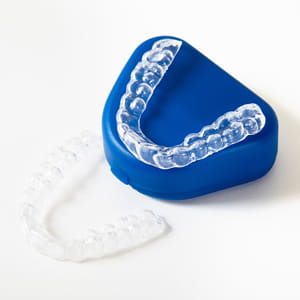
BACKGROUND: Mr M attends his dental practice for a routine check-up. His teeth are yellowed from tea and cigarette smoking and he asks about whitening treatment. Dr J discusses various options and Mr M agrees to one session of light-activating whitening, followed-up with a home whitening kit.
Mr M attends the practice for impressions for the home whitening treatment and a week later undergoes the in-surgery whitening procedure. He expresses immediate dissatisfaction with the results. Dr J supplies him with the home whitening kit and offers instructions on use in order to achieve a lighter shade.
Later that afternoon Mr M phones the practice again expressing his dissatisfaction with the treatment and demanding a refund. Dr J contacts MDDUS for advice on dealing with the complaint.
ANALYSIS/OUTCOME: An MDDUS dental adviser reviews the patient notes and responds to Dr J. He expresses some concern that there are no details in the clinical notes regarding assessment of Mr M’s specific dentition and the likely change in shade that would be realistic to expect.
The adviser notes that a patient information leaflet from the manufacturer was given to Mr M providing generic information but that it could be argued the patient was not sufficiently informed to make a decision about his personal situation. Dr J claims that she told Mr M he could expect his teeth to lighten by 2-3 tones but there is no reference to this in the clinical notes. Nor are there colour photographs of the patient’s dentition prior to treatment, record of the pre-treatment shade and a signed consent document.
The adviser suggests that when proposing whitening treatment in future, Dr J should make a clinical record of any individual patient factors that may affect outcome, such as restorations and the shade of the teeth at the outset. She should also record what was discussed with the patient in regard to reasonable expectations of the treatment outcome.
Given these concerns, Dr J is advised on this occasion to refund the payment in order to avoid becoming embroiled in a prolonged dispute.
KEY POINTS
- Ensure patients have reasonable expectations before agreeing to provide treatment – especially in cosmetic treatments.
- Remember the importance of shared decision-making in patient consent.
- Record clinical factors considered relative to available treatment options.
- Record discussion with patients regarding expected treatment and outcomes.
This page was correct at the time of publication. Any guidance is intended as general guidance for members only. If you are a member and need specific advice relating to your own circumstances, please contact one of our advisers.
Save this article
Save this article to a list of favourite articles which members can access in their account.
Save to library